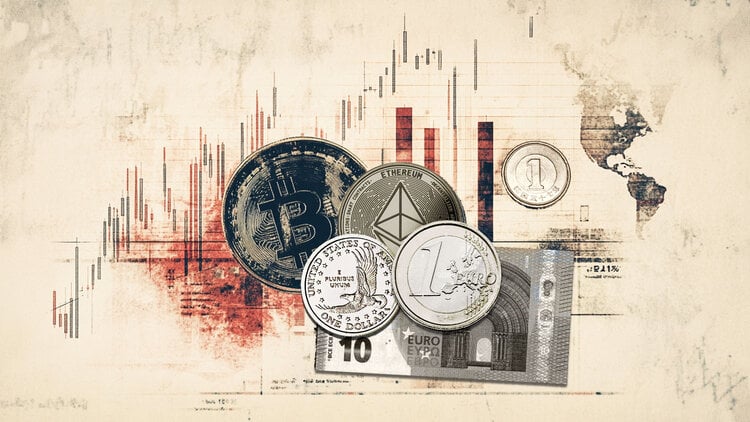LAST UPDATE: 18.25
Positive trends prevail on Wall Street on Friday, amid moderate optimism about developments in the war in Ukraine, after Russian President Vladimir Putin’s report on some progress in Moscow’s talks with Kyiv. The Dow adds more than 0.5% and the S&P 500 has small gains, while the Nasdaq is moving down.
On a weekly basis, all three indices move in a trajectory of losses of more than 1%. The Dow is heading for the fifth consecutive week with a negative sign, while the S&P 500 and Nasdaq in the third consecutive negative 5-day.
In particular, during his meeting with the President of Belarus Alexander Lukashenko in the Kremlin, Putin said that “there are some positive changes, as our negotiators tell me,” adding that the talks continue “practically on a daily basis.” “.
The statement from Kremlin spokesman Dmitry Peshkov was also encouraging for the investment climate. did not rule out a meeting between Russian President Vladimir Putin and his Ukrainian counterpart Volodymyr Zelensky. As he said, however, “it must first be made certain that the two heads of state meet to have some result and not just to meet.”
However, developments on the battlefield in Ukraine does not show any kind of de-escalation. The Russian military has resumed its offensive efforts and since Friday morning has targeted new Ukrainian cities which it is bombing and trying to encircle. In fact, for the first time today, Russian forces targeted areas in western Ukraine around Lviv.
In the economic field, Goldman Sachs cut its forecast for US economic growth, citing the effects of higher oil prices and the conflict in Ukraine. Oil prices rose about 2% on Friday.
In addition, Joe Biden called the US on Friday to revoke the trade regime of the “rather favored state” of Russiawhich will degrade Russia as a trading partner and pave the way for new customs duties for Moscow due to its invasion of Ukraine, as reported by CNBC. To cancel permanent normal trade relations with Russia, Biden will need congressional approval, but is not expected to meet with serious opposition.
The European Union and the G7 are expected to take similar action, as reported by many foreign media. Canada removed Russia from its “rather-favored-nation” status last week.
At the same time, investors continue to weigh the new increase in US household spending in February, as prices continued to rise, leading the annual inflation to a new high of 40 years and hitting the pockets of Americans even harder. In particular, o consumer price index climbed to 7.9% in February compared to last year, marking the largest annual increase since 1982, surpassing 7.5% in January.
Economists estimate that the Russian invasion of Ukraine will increase the upward pressure on prices. Thus, while expecting that inflation will slow down later this year, they estimate that consumers will not soon see a sharpening of their spending, as price increases exceed the rate of wage growth, which is around 5%.
In the meantime, his performance 10-year US government bond falls by 1 basis point to 2%, while the dollar loses 0.2%.
Indicators – Statistics
On the dashboard, the industrial Dow adds about 200 points or 0.6% to 33,350, the widest S&P 500 gains 0.15% to 4,265 points and the technological Nasdaq falls 0.3% to 13,090 points.
From 30 shares that make up the Dow, 25 are moving with a positive sign and 5 with a negative. Boeing and Dow Inc. are leading the way with gains of 2.8% and 2.65% respectively, while Cisco and Travelers Cos are also gaining more than 2%. The biggest losses are recorded by Apple with a drop of 0.9%.
The DocuSign title sinks 21% after the disappointing guidance announced by the electronic signature company.
Rivian Automotive is losing more than 3% after electric truck maker said it lost more than $ 2 billion in the fourth quarter amid ongoing disruptions in the supply chain.
Macro
Consumer confidence in the US plunged in March, with the index falling to a 11-year low as the inflation rally affected households’ living standards.
In particular, the University of Michigan Consumer Confidence Index fell to 59.7 points based on the initial measurement for March, from the final measurement in February to 62.8 points.
It is noted that the average estimates of analysts in a Wall Street poll put the index at 62.0 points.
Source: Capital
I am Sophia william, author of World Stock Market. I have a degree in journalism from the University of Missouri and I have worked as a reporter for several news websites. I have a passion for writing and informing people about the latest news and events happening in the world. I strive to be accurate and unbiased in my reporting, and I hope to provide readers with valuable information that they can use to make informed decisions.







